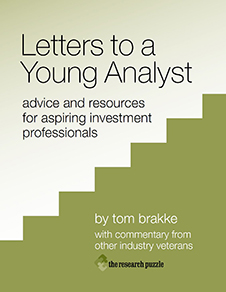
- Thursday, October 9th, 2008
- rethink everything
-
Today’s title reflects a relatively common admonition, but if ever it was appropriate — and if ever it required an exclamation point — it was for the CFA Institute’s conference this week, “Fixed-Income Management 2008: Rethink Everything!”CFA Institute | There were a couple of last-minute changes to this online agenda. When choosing a heading some months ago, the organizers could not have appreciated how badly a new way of looking at the world would be needed.
Decades back, bond managers could dispense with their client reports quickly and concisely. There really wasn’t much to say, with rates moving a few basis points a quarter and not a lot happening on the credit front either. The great inflation of thirty years ago introduced a new level of volatility to the endeavor, and the rapid growth of mortgage-backed securities soon thereafter was the first sign that something broader was afoot, with the arrival of the “junk” market sealing the deal. In relatively short order the bond backwater became the locus of modern finance, despite the fact that equities still get most of the attention. Year after year, new layers of complexity were added, new products were created, and new jargon found its way into the lexicon of the players.
Then the music stopped.
The headlines on the broad tape continue to come at a rapid pace and summarize the unthinkable initiatives, proclamations, and confessions of this credit crisis, but the market in most things has simply disappeared. For attendees and presenters at the conference, the inability to transact freed up time to consider their processes and methods, as a true rethinking should.
In subsequent postings, I will reflect on various speakers and concepts from the conference, but I must begin with Mohamed El-Erian of Pimco, since he pushed the hardest the need to rip up the old playbook and begin anew. When “the unthinkable is thinkable,” he said, it is even necessary to consider strategies that are “counter to traditional investment theory.”
Such a suggestion sounded natural to someone like me who writes and consults about the need to boldly reexamine the conventional wisdom, but it must have seemed truly radical to many in the room. El-Erian provided a few principles that are necessary culturally for an organization to be successful, including an understanding of the cyclical versus the secular, a willingness to second-guess and question assumptions, and a “constructive paranoia.”
His listing of items to mistrust provided the indication that no proverbial stone should remain unturned. He called the standard approach to asset allocation “fatigued,” with the current situation exposing some of its weaknesses. Just as important is the fact that many of the investment vehicles with which those asset class exposures are implemented have displayed more “fragility” than was thought possible, especially in leveraged strategies. All of this points to the need for a new look at risk management; El-Erian called the current tools “very blunt” and flawed.
In a world where those principles form the foundations of much investment analysis — whether it be in a skyscraper or the simple office of a small-town adviser — his guidance indicates that there really are no limitations to the rethinking. It is truly everything.
The exclamation point is this: El-Erian judges most financial intermediaries to be unprepared for the changes they face. He thinks they are not ready to deal with the differences between the “destinations and journeys” afforded by the markets and those expected by investors. In addition, he pronounces investment firms (of all stripes, not just fixed income) not very good at separating the signals from the noise of the markets, and thereby not effective at delivering on their stated missions. Finally, the fact that the business has always been based on products rather than solutions makes the structural changes that are needed even harder to implement.
A new world is coming. Is your firm going to lead or follow?
